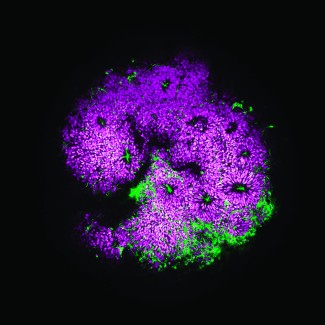The main objective of the teams in this area is to identify the genetic, molecular and cellular mechanisms that underlie brain function during development and aging.
This fundamental knowledge is essential for understanding major brain functions and neurological and psychiatric diseases in order to develop new therapeutic targets.
Mobilization of teams
Paris Brain Institute teams in molecular and cellular neuroscience are engaged in a collaborative effort to understand normal brain and spinal cord development and the causes of their dysfunction in aging and neurological diseases (neurodegenerative diseases, multiple sclerosis, epilepsy, brain tumours, etc.).
Paris Brain Institute strategy is to assess the influence of genetics, dissect the molecular machinery of intracellular signaling, elucidate the role of different cell types, and understand complex cellular interactions in the normal or pathological state. The elucidation of the molecular and cellular bases of disorders of the nervous system allows us to understand the mechanisms of diseases and to develop new approaches to diagnose and treat them.







